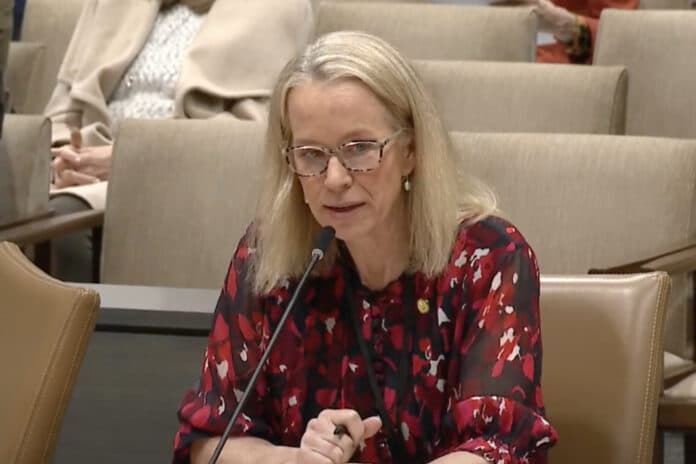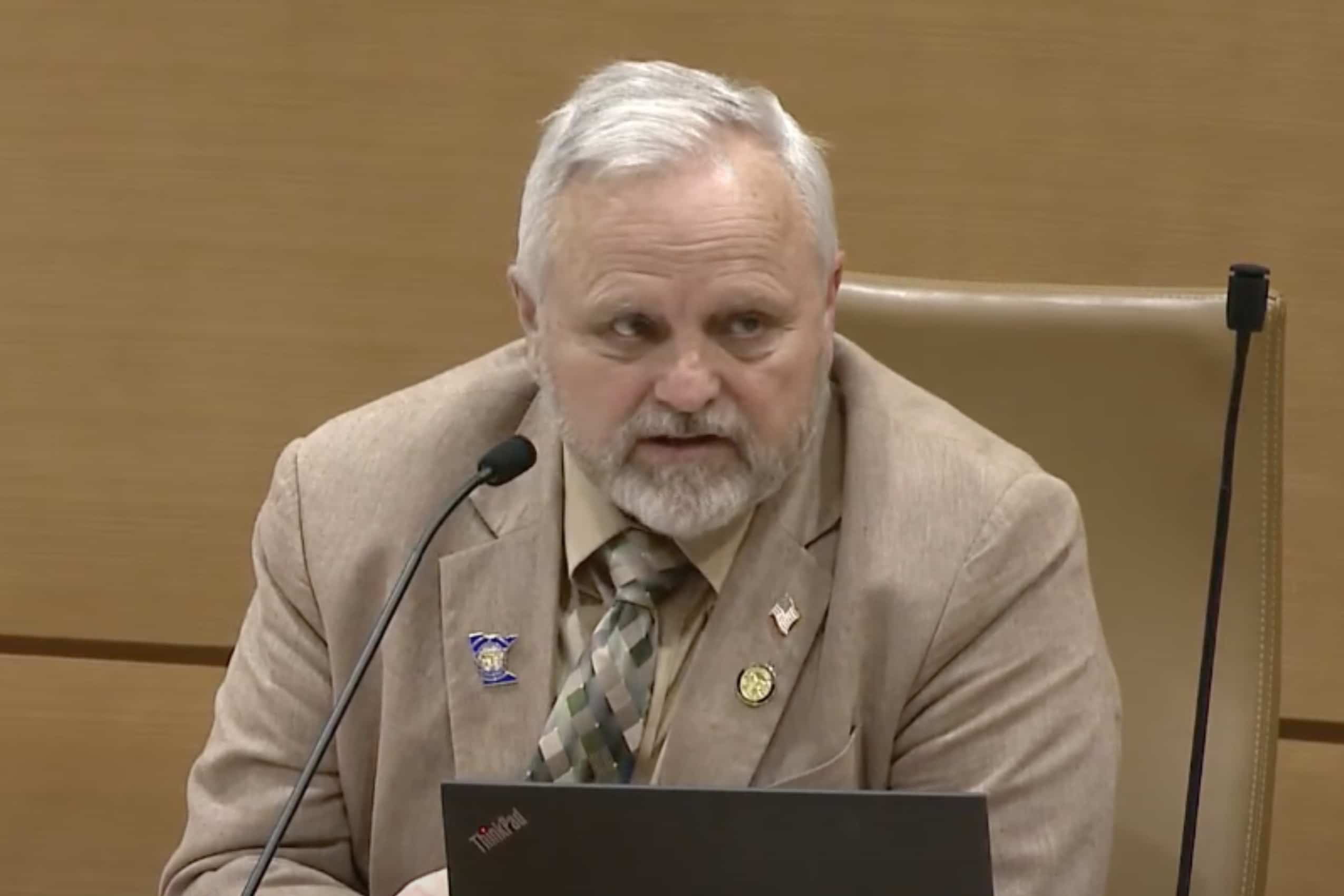
Businesses from a wide variety of commercial industries across Minnesota and the nation are pushing back on a bill moving through the Minnesota Legislature that would require all consumer packaging to be reusable, recyclable, or compostable by 2032.
And a DFL candidate for Congress who sponsors the bill in the Minnesota Senate is not backing down on her proposal, which Republicans are saying is premature and shortchanges the efforts private industries in Minnesota have already made in recycling.
Sen. Kelly Morrison, of Deephaven, is considered the front runner among Democrats to replace retiring Congressman Dean Phillips for the seat representing Minnesota’s Third Congressional District. The medical doctor and third-term legislator is well known for her progressive political record during her five years in lawmaking.
Morrison is sponsoring SF3561, the “Packaging Waste and Cost Reduction Act,” which would mandate that “(a)fter January 1, 2032, no producer may introduce covered materials unless the covered materials are reusable and included in an established reuse system that meets the reuse rate and return rate required under this act.”
“Minnesotans are frustrated with the growing environmental and financial impacts of excessive packaging waste,” Morrison wrote in a communication to her constituents explaining the bill in February. “The Packaging Waste and Cost Reduction Act is a great step forward to making recycling easier, decreasing climate impacts from waste, and lowering taxpayer costs.”
The bill would create an 18-member commission to help implement the new mandates, which would be enforced by the Minnesota Pollution Control Agency.
A number of organizations that represent hundreds of businesses and storefronts across Minnesota and America have written and spoken in opposition to the bill. Several say it represents an overreach into the private sector which already has made strides to adapt the sustainability of packaging for any number of consumer-reaching products. Several environmental lobbying organizations have expressed support for the bill.
Morrison’s proposal, which she introduced in a Senate committee hearing in February, spans 40 sections of new provisions.
The legislation has already passed through three Senate committees and four House committees, despite lacking fiscal notes on the total cost of implementation along the way. On Friday it’s scheduled for one more stop in the Senate Environment, Climate and Legacy Committee. The most recent iteration of the bill includes amendments that would exempt newspaper businesses from the packaging requirements and target only packaging “that is supplied to a residential consumer.”
During a hearing on the bill in February, representatives for the Minnesota Chamber of Commerce, Medical Alley, Minnesota Retailers Association, American Forest Paper Association and other lobbying organizations criticized elements of the bill, saying it would cause significant problems in uniformity of packaging for products that have national distribution, such as medical devices, food and beauty products.
“We’re asking committee members to ensure this legislation prioritizes access to medical care while allowing for environmental stewardship to be managed by federal regulations and industry to ensure a consistent and stable supply of life-saving medical equipment,” said Peter Glessing, a government relations director for Minnesota-based Medical Alley, which represents more than 800 health care device and technology companies throughout the state.

The Minnesota Chamber of Commerce representatives criticized Morrison’s bill, saying it appears premature as it includes no exemptions for products whose packaging is mandated by federal rules and law.
“Minnesota, I think, we can all agree is one of the leaders in national recycling efforts,” said Tony Kwilas, director of environmental policy for the chamber. “I think we should pause before we go through and look at a new way to do it and possibly look at the existing structure right now.”
Two DFLers express caution on mandates in Morrison’s bill
Two DFL lawmakers — John Hoffman of Champlin, a co-sponsor of the bill, and Grant Hauschild of Hermantown — who sit on the Senate Climate, Environment and Legacy Committee, expressed caution as to whether Morrison’s bill will address concerns raised by the medical device and timber industries in Minnesota.
“I’m in the middle on this (legislation),” Hauschild told Morrison in the February hearing. “I like a lot of it, but I am challenged by a lot of it. My district includes a big timber industry. I have visited those paper mills. I have stood on the strike lines with laborers in that industry … In my mind, everything I have learned from that industry and my time in office is that they are doing things right (in terms of packaging and recycling).”
Republicans in the committee hearings on the bill have criticized the fiscal implications of the bill and its cost burden that will be put on consumers.
“As these things are implemented this is going to be a substantial increase in cost to the people packaging these products and sending them out, and that cost will increase the costs of these products,” said Sen. Steve Green, R-Fosston. “And those who will see the biggest cost impact are those who can afford them the least.”
But Sen. Jennifer McEwen, DFL-Duluth, says she fully supports Morrison bill and its timeline for mandating businesses change their packaging material practices.
“Corporate America has filled that lake (Superior) with microplastics that are in my body right now, and in my kids bodies who are up in Duluth right now,” McEwen said. “The idea that we wouldn’t do this now, we are way late to the game friends, way late to the game.”
Morrison seconded that notion.
“We can’t continue to do what we are doing now,” she said. “We need to change course.”
Hank Long
Hank Long is a journalism and communications professional whose writing career includes coverage of the Minnesota legislature, city and county governments and the commercial real estate industry. Hank received his undergraduate degree at the University of Minnesota, where he studied journalism, and his law degree at the University of St. Thomas. The Minnesota native lives in the Twin Cities with his wife and four children. His dream is to be around when the Vikings win the Super Bowl.











